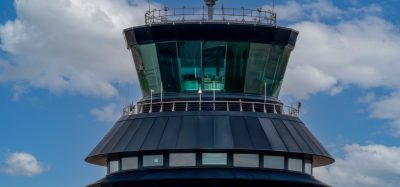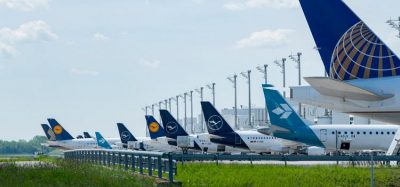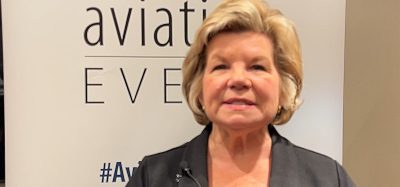Facilitating increased globalisation
- Like
- Digg
- Del
- Tumblr
- VKontakte
- Buffer
- Love This
- Odnoklassniki
- Meneame
- Blogger
- Amazon
- Yahoo Mail
- Gmail
- AOL
- Newsvine
- HackerNews
- Evernote
- MySpace
- Mail.ru
- Viadeo
- Line
- Comments
- Yummly
- SMS
- Viber
- Telegram
- Subscribe
- Skype
- Facebook Messenger
- Kakao
- LiveJournal
- Yammer
- Edgar
- Fintel
- Mix
- Instapaper
- Copy Link
Posted: 16 September 2005 | Dora Kay, Immediate Past Chairman, The International Air Cargo Association | No comments yet
TIACA uses its partnerships with Government and trade organisations to progress the cause of air cargo and global economic development.
TIACA uses its partnerships with Government and trade organisations to progress the cause of air cargo and global economic development.
With the increasing complexity of air transport and international trade, TIACA has found it helpful to interface with other industry, trade and official organisations in order to share ideas, efforts and positions. This reflects our firm conviction of the benefits of a systematic development of inter-institutional contact and collaboration.
In respect of other industry and trade associations, TIACA has maintained regular contact with, and participated in events sponsored by the Airports Council International (ACI), the Air Transport Association (ATA), Cargo Network Services (CNS), the Global Express Association (GEA) and the International Federation of Freight Forwarders Associations (FIATA). TIACA finds that it shares many of the goals of these organisations, especially as they pertain to commercial air transport liberalisation, customs reform and trade facilitation.
All of these organisations are aware of the well established relationship between air cargo growth and growth in gross domestic product (GDP). They share TIACA’s belief that the two are mutually causal and highly interdependent.
On the official level we are particularly interested in the International Civil Aviation Organization (ICAO), the World Customs Organization (WCO), the World Trade Organization (WTO), the World Bank and the United Nations (UN).
Current ICAO interests
Concerning ICAO, TIACA is currently most interested in Annex 9, Facilitation and Annex 17, Security. There is also a series of Assembly Statements and Recommendations that supplement and support these Annexes and deal with such other ICAO responsibilities as environmental protection.
Since attaining Observer status and delivering a paper on liberalisation at ICAO’s Worldwide Air Transport Conference in Montreal in March 2003, TIACA is now represented at ICAO Assemblies and major events. In 2004, TIACA participated in and presented papers to the Facilitation Division in March and also attended ICAO’s Assembly in September. In May this year, we spoke at ICAO’s Liberalization conference in Shanghai. This ensures that we are now at the centre of global regulatory strategy. While ICAO decisions remain firmly in the hands of civil aviation departments of member state governments, we are able to offer our own views and suggestions and support them by written and oral argument.
We are also privileged to attend and offer our views at the very useful and informative meetings of the Facilitation Working Group and its Cargo Sub-Group within the European Civil Aviation Council. This body makes substantial and timely regional input to ICAO and has special links to the EU Commission and Council transport strategies.
World Customs Organisation
The WCO provides consultative and co-operative services for some 160 Customs services. Almost every item of goods moving in international trade is identified, at least twice in its transaction cycle, by reference to its entry in the WCO Harmonized System of Goods Description, administered and regularly revised by the HS Committee.
The WCO Technical Valuation Committee manages and issues decisions on the application of the GATT Valuation Agreement. The Enforcement Committee, which traditionally focused on fraud and illicit drug smuggling, is now closely engaged in considering details of modern security regimes, including, most recently, the production of multilateral and bilateral Customs Mutual Assistance Agreements.
The Permanent Technical Committee (PTC) had been the main deliberative tool of the Compliance and Facilitation Directorate. However, during the last two years it has had to cede central importance to a Security and Facilitation Task Force set up by the WCO Council to consult with trade representatives to produce draft guidelines for such subjects of common interest as advance cargo information, supply chain security and key risk-assessment consignment identification data. The Task Force has now been disbanded, but its major security concerns have by-passed the PTC and been assigned to a small high level Strategic Group, acting, for the moment, without direct trade input. This in effect leaves the PTC with little remaining territory outside of facilitation. Its future role may well settle round its projected task as the Management Committee for the revised Kyoto Convention for the Simplification of Customs Procedures, expected to come into initial force shortly.
A new Directorate is being formed to deal with WCO responsibilities in capacity building, especially those that might be essential to underpin success in the WTO’s efforts for facilitation through Customs reform. In view of the recent weakening of the PTC, so far the main practical focus for WCO/TIACA co-operation, we have formally suggested to the WCO that the scope and title of this Directorate should be enlarged to include trade partnership.
The world-wide intensification of security measures, the sustained threats of illicit drug smuggling, the tendency to amalgamate official border controls under single management and the urgent need to apply some global standardisation (to what may otherwise become a resistant mass of individual national requirements), attach unique value to the WCO as an international forum. This is a forum that allows TIACA and other trade interests to access and influence decisions regarding the ways in which Customs define and apply their now very powerful interventions in every international transaction.
World Trade Organisation
This facility to affect inter-governmental policy and action in Customs affairs is particularly important in relation to the prospective WTO negotiations under the heading of Trade Facilitation. All of the subjects raised in the two or three years of preliminary documentation in the WTO Council on Trade in Goods and elsewhere have concentrated on GATT Articles V (Transit), VIII (Transparency) and X (Formalities and Fees) and dealt with these solely in terms of extension or enhancement to simplify Customs practices.
TIACA has submitted a formal note to the WTO Secretary General to request that the Council on Trade in Goods, which is charged with the Facilitation dossier, gives a clear indication of the extent to which it may move debate and decision outside of the relatively narrow Customs part in the overall origin-destination course of the international trade transaction. We have been assured that our request will be put before the relevant Council Expert Group at its first meeting.
Whatever the eventual response, we may be reasonably certain that attention will continue to focus on Customs reform. As we, along with other trade bodies, have no formal representative access to the WTO deliberations, it is all the more important that we stimulate and help WCO member administrations to contact, inform and influence their respective trade ministers and WTO delegates to develop WTO facilitation policies in line with whatever improvements and simplifications we can obtain in the WCO.
We have also suggested, in a letter to the Financial Times late last year, that the WTO might find the WCO, with its open door for global trade organisations, a useful and informal sounding board for business reaction to the progress of the Council on Trade in Goods facilitation debate.
Encouraging growth
Security and regulatory reform cannot occupy the entire TIACA horizon. The air cargo industry, which we serve, has to make its way and develop its activities through the daily exercise of commercial innovation and competition.
TIACA has explained, supported and pursued the case for global liberalisation of all air transport, with emphasis on cargo as an invaluable forerunner and prototype, on all possible occasions including ICAO and other global assemblies. We see and advance this principle as a dynamic contribution to the global economic growth on which all governments now depend for their reliable budgetary policies and stable social environments.
We are also most conscious of the need to alert politicians and business policy makers to the hitherto unpublicised but now patent, very practical role of air cargo services to global economic development policy.
Globalisation, in its present dynamic guise, would be impossible without the support and enabling power of innovative air cargo services. They are an essential element in world wide integrated supply, production and distribution operations and associated outsourcing for major multinational manufacturing companies. They are an indispensable key to profitable and expanding sub-contract operations for small and medium sized industries in all developing countries.
We are also receiving daily evidence of intensifying air cargo activity in moving certain products, such as cut flowers, premium vegetables and exotic fruits from an increasing range of developing countries to very appreciative and expanding markets in many developed economies. Rapid, reliable delivery, by air, minimises the need for costly intermediary warehousing and refrigeration services, enabling more and more developing countries to conserve resources and explore alternatives like solar energy.
The World Bank
As the focal global aid and lending agency, the World Bank has a long standing reputation for massive and discerning investment in transport facilities and logistics. However, we were somewhat surprised to find that it accords hardly any role to air transport in its very comprehensive website coverage of current projects and programs, which includes very large investments in road, rail and port infrastructures and facilities. TIACA has therefore moved into a new, institutional relationship with the World Bank through active membership of its Global Facilitation Partnership for Transportation and Trade (GFP), which coordinates understanding and promotion of the Bank’s trade and transport facilitation activities. Furthermore, we are now managing the Air Transport and Airport Operations section of the GFP website.
We were also instrumental in bringing the Bank and the WCO into a special and regular consultative working relationship through a now regular series of annual joint GFP meetings in Brussels, alternating with the more established series of GFP gatherings in Washington.
The most recent extension to our institutional interests is by way of admission to formal observer status with UNCTAD, which, in practice, also opens the way to full participation in the long-standing professional facilitation work, organised in Geneva by the UN Economic Commission for Europe.
It would be illogical and probably imprudent for TIACA to build up and work at this now substantial official inter-governmental consultative interface without sharing our involvement through strengthened links to a number of other adjacent, potentially co-operative trade bodies.
We share members, and thus some important common objectives and policies, with IATA, FIATA, GEA (formerly the International Express Carriers Conference) and the Universal Postal Union (UPU) in its trade association, as distinct from regulatory, role. The operational realities of multimodal transport have also alerted us to the benefits of increased interest in the cross-border facilitation systems managed by the International Road Traffic Union (IRU). Furthermore, given the complex nature of many international supply chains, now the subject of comprehensive, inter-related security regimes, we are also concerned with a range of maritime and port issues handled by the International Chamber of Shipping (ICS) and the International Association of Ports and Harbors (IAPH).
Policy consensus
It would not make any sense for TIACA to be at cross policy purposes with any of these other organisations to which some of our members are also subscribing. We have already sought to go well beyond this simple assessment to develop a whole spectrum of constructive institutional relationships, running from sustained personal secretariat and member contacts and routine information sharing to informal co-ordination of public statements and representations. This is particularly important when attending and intervening at meetings of some of the inter-governmental bodies mentioned earlier in this article.
Recent acute pressures on the trade from tightened security regimes have demonstrated the need for, and benefits of, carefully managed co-operation between different sectors of the air cargo industry and within the wider international trade and transport community.
Future moves under consideration include the reviewing of individual meeting calendars to see whether key annual or biennial assemblies and major routine committee meetings, might be brought into useful synchronisation with each other and with foreseeable regular gatherings of key inter-governmental bodies.
All of these improvements and extensions to institutional co-operation will be pointless unless they are intended and used to produce specific improvements in the operational environment for our members and the air cargo industry. Here we can cite a growing volume of specific policies, promotions and actions.
TIACA documentation during the last few months has been addressed too and has usually been supported personally at a range of international debates, consultations and conferences. This documentation has included carefully argued and researched position and discussion papers on the Authorized Supply Chain, Capacity Building for Facilitation, Customs and Trade Integrity, the Institutional Marketplace, Air Cargo and the Third World, Data Discipline, Customs Performance Measurement, Unique Consignment Identification and the Virtual Border.
We will continue to work diligently with other trade, official and regulatory bodies for the benefit of our members and the air cargo business. Such partnerships and joint efforts are key in our drive for air cargo liberalisation and trade facilitation to enhance world economic development.
Dora Kay
Mrs Dora Kay is Head of International Marketing of the Airport Authority Hong Kong and manages the Airport Authority’s international relationship management, including the Authority’s corporate memberships in trade associations. She is a trustee, immediate past chairman and education committee chairman of TIACA (The International Air Cargo Association). She also represents the Airport Authority at Airports Council International.


















